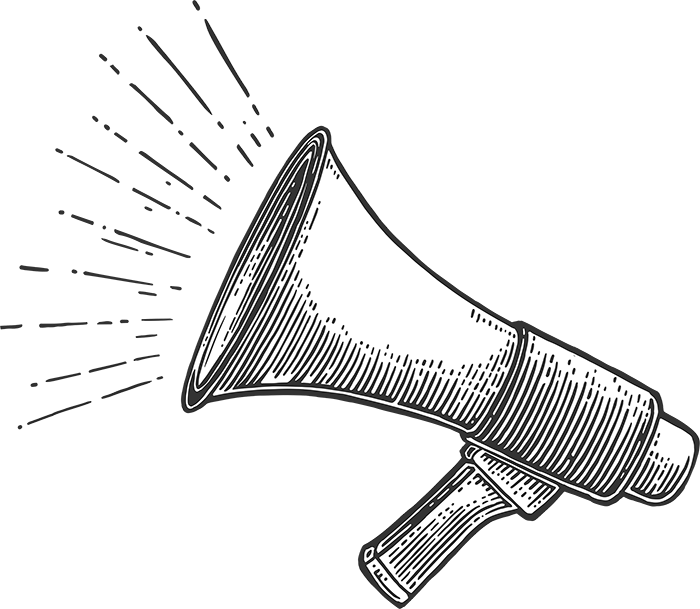Finding Your Voice
I just want to say that I’d kill a man for some Starbucks right now. That’s all.
David Lawrence, Jurgen Wolff, and Jim Kukral are here to talk about finding your natural voice. Or at least that’s what they promise. Right now there’s some arguing about zip codes and football teams and who beat whose hometown. I don’t know. I need coffee.
Jurgen is up first. He says this is a quality audience because people are willing to go to a session that doesn’t have the word "monetize" in the title. Nice.
He says there’s a fear at first to be yourself on your blog because people don’t want to turn off their audience. He has a cautionary tale about a jazz announcer.
The announcer was a Beatnik. He looked the part with a goatee and a beret. He was portly and always wore jumpsuits. He told Jurgen a story about when he tried out to be the host of the Tonight Show (this was before Johnny Carson). The musician showed up and did this bit and the guy from NBC showed up and said, "I’m not sure about that beret…or the jumpsuit" By the time they were done with him, he no longer looked like himself. And when he had been neutered that way, no one liked him. He later said he would have rather failed on his own terms. Jurgen uses that story to remind himself that you have to be who you are and hopefully enough people will like that.
A lot of times finding your voice just comes from keeping on, especially during those times when you don’t know what to write about. That’s when something real emerges. People want real stories and a sense of connection. We’re lucky because these formats (blogging and podcasting) allow us to do both of those really well without all the usual gatekeepers that there usually are between us and the audience. If we take advantage of that, we’ll find our audience.
Jim Kukral is up next. He says he’s the blogger contingent on the panel. Jim said he found his voice because he was trying to reach a goal, which was to get more customers. He says preparation is extremely important in finding your voice. He used to just blog about whatever was on his mind. He found that if he took time to put his thoughts on paper and decide what he wanted to say before he started writing, then the post ultimately came out better.
David says that your natural voice will find you. You’ve already found it, you just don’t know it. Everyone’s natural voice is unique. Your natural voice is what will help you gather a large audience. The more natural your voice, the closer you are to being you and the more your audience will like you. You also attract advertisers this way. You want to persuade and influence listeners. You will generate rapid fans who will sing your praises to all who would listen. Keep your voice in ready condition.
Your natural voice is steady, is it calm, clear and reassuring. It’s powerful regardless of who you’re speaking to. It’s effortless. If you have to strain to reach your natural voice, that’s not your natural voice. It’s the voice that you use when you’re as enthusiastic as you can possible be. Your natural voice is you. Whether you think it’s whiny (or others do. Hi, Danny!) or high pitched or nasally or filled with rocks, that’s your natural voice. Embrace it.
Your natural voice is not harsh, annoying, pukey, a strain, awkward, false or someone you’re not.
David says that finding your natural voice is about finding yourself. When your natural voice comes through, that’s when the magnetism occurs.
From here, David starts talking a lot about podcasting.
He says that your voice is two sets of muscles. You have to exercise it. If you’re not blogging today, write gratuitously. If you’re not podcasting today, join Toastmasters. You’ll be able to hear the difference. You speak 14,000 spoken words a day. (One smartass audience member asks if that number changes based on whether you’re male or female. He thinks he’s super funny. I bet he’s single. [Not to mention falling prey to a made up and demonstrably false statistic.–Susan]) You hear 250,000 words a day. We move closer to people talking softly so we can hear what they’re saying. When they speak loudly, we back up. Temper your volume.
He outlines a list of tools for podcasters:
- Headphones – Keep your headphones at a low volume level. You’ll naturally speak louder because you’ll try to hear yourself.
- Scripts: Don’t use them. Use notes.
- Recording devices.
If you’re a podcaster, things that will help your voice are water, clear juice, mild soups, and easy does it hot chocolate. Things that hurt your voice alcohol, sodas, coffee, etc.
Stand up while you’re speaking. It will give you more energy.
Podcasts are different because podcasts are not broadcasts. Today’s broadcasts are not broadcasts anymore because the noise floor has now risen. People have so much choice that they’re confused. We need guides to tell us what’s good. That’s why we still have the TV Guide.
When you blog or podcast, speak to one person, just be specific. Talk to your target. Write for the ears, not for the eye, so that when people read it, they hear it easily. Paint yourself into their corner. Voice work/writing should be friction free. You should know what you’re going to say and how you’re going to craft.
Jim asks the audience what we looked to get out of this session. I, for one, did not think I was going to be hearing about what juices I should drink while podcasting. I was hoping to learn how to be who I am offline online. Or how to sound more genuine. It doesn’t look like we’re going to get any of that. Oh well.
David advises bloggers and podcasters not to take up so much of people’s live all at once. Post more, shorter blog posts. If you’re doing a podcast, do six episodes of ten minutes each, not one 60 minute podcast.
When you’re writing your blog post or your podcast, you have to let your world view shine through.
In Jim’s experience with blogging he writes like he talks (me too). He wrote his presentation 3 hours ago as a script. He wrote it the same way he’d say it. Some of his most successful blog posts have been sessions. Or a good headline and a sentence and a link. (Hey, Susan, can I do that?) [No. –Susan]
Don’t do your show or your blog for anyone other than you and your team. As Jurgen said, don’t neuter yourself. Get rid of the things that people will tell you they want you to do. He used to tell people that he couldn’t care less of what his listeners thought of his radio show. He knew someone who spent 2 hours doing a podcast and then 6 hours editing it to take out all the "ums" and "ahs". Don’t do that. That’s the color of your speaking. Speak more, write more. Don’t take the time editing that stuff out. Think of all the stuff on TiVo you could be watching if you weren’t editing out all your breaths and pauses.
He’s doing his Bill Cosby impression and people are cracking up. It’s seriously hilarious. There are almost tears.
People do a lot of what they heard when they were growing up, not what they hear today. You don’t have to tell people you’re back from a commercial. They know. They can hear/see you. You don’t have to do the niceties. You don’t have to be formal or have a "thing" that you do.
How has it helped you as a person to have that authentic voice?
Dave says money. Now that he uses his natural voice, he has more of it. Finding your natural voice gives you a level of confidence that no matter where you go you can make money. Finding your natural voice benefits you in so many ways.
Using humor. The best humor is done in the moment completely deadpan. If they don’t know you’re being funny, adding the smiley face isn’t going to help them.
The lesson of the session: Be yourself and accept that that’s okay. Hugs! [I feel so affirmed. Also I’m going to be actually editorial here and point out that Lisa covered this topic very well last December with “When You’ve Lost Your Blog Voice” as well as in April and June of this year. –Susan]
26,000+ professionals, marketers and SEOs read the Bruce Clay Blog
Subscribe now for free to get:
- Expert SEO insights from the "Father of SEO."
- Proven SEO strategies to optimize website performance.
- SEO advice to earn more website traffic, higher search ranking and increased revenue.

LEAVE A REPLY









